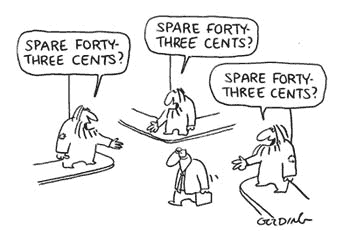I recently read about another example of price fixing, cartels, collusion and whistle blowing, here it is.
The EU has boosted its revenue for the year by fining 11 airlines almost 800m euros for fixing cargo prices between 1999 and 2006. AirFrance-KLM are hit the hardest, at 340m, followed by BA at 104m - but Lufthansa, who blew the whistle on the other airlines involved, are not fined at all.
This gives yet another example of game theory, and the mind-games that colluding companies must engage in as they try to second-guess which fellow cartel member is most likely to alert the authorities in order to escape a fine, and exactly when that will happen.
The maximum possible fine, of 10% of a companies world-wide revenues for the year, sounds as it is enough to deter businesses from entering into cartels. Yet a look through a number of examples at the botton of this piece.
It makes me wonder if the potential benefits to the colluding firm, over the years that they manage to get away with it, are greater than the fine that they risk when, or if, they are found out. Do they see the potential fine as a legitimate expense of running the business, which is unfortunate but worth the risk?
The BBC report that “BA said it had already made a £350m provision for any possible fines over the cargo price fixing. A BA spokesman said the airline’s fine fell “within the provision made by the company in its 2006/7 report and accounts"." - almost as if it was depreciation.
Q) Surely this suggests the fines should be higher?
Check out some of the links below. I hope that you are as scandalised as me, by the way that the firm that betrays other cartel members to the authorities gets away without a fine!
BA & Virgin Price fixing
Auction Houses and Price Fixing
Billionnaire in Cardboard price fixing cartel
Firm tries to fix prices by text!
Fine for cigarette price fixing
Probe into chocolate price fixing
LCD manufacturers screened for price fixing.

No comments:
Post a Comment